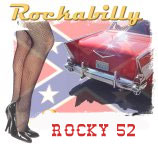


|
|
|
 |
![]()
![]() Groupe
Country US du Texas, les Lone Star Playboys ont enregistré chez Blue Bonnet, Modern et
Everstate Records.
Groupe
Country US du Texas, les Lone Star Playboys ont enregistré chez Blue Bonnet, Modern et
Everstate Records.
![]() US Country
group du Texas, the Lone Star Playboys recorded at Blue Bonnet, Modern and Everstate
Records.
US Country
group du Texas, the Lone Star Playboys recorded at Blue Bonnet, Modern and Everstate
Records.
The Lone Star Playboys were a popular country touring band in Central Texas from
1937 to the 1950s but are perhaps best-known for their connection with the
“Westphalia Waltz,” a beloved dance standard. Members of the group included
vocalist Hamlet Booker and his brother Morris Booker on mandolin, Vince Incadona
on banjo, fiddler Cotton Collins, bassist Pee Wee Truehitt, and Bob Walker.
During the late 1930s and early 1940s the Lone Star Playboys performed
throughout Texas and on radio.
Sources differ regarding the precise origin of the melody for the “Westphalia
Waltz.” A documentary (produced by Joe Weed) about the song states that the
melody was adapted from a Polish folk song “Pytala Sie Pani,” and that fiddler
Cotton Collins molded the tune into a Texas fiddle song after hearing it in
Bremond—a Central Texas community with a large Polish population. Other sources
claim that Collins heard the song while he was serving in the United States Army
in Germany during World War II. At any rate, in 1946 Collins’s performance of
the song with the Lone Star Playboys proved to be a popular number at dances.
After one such event at Westphalia Hall, the establishment’s manager, B. J.
Lignau, commented to the band that Collins’s “No Name Waltz” was a crowd pleaser.
Because the song had no name, Lignau suggested the title “Westphalia Waltz” in
honor of the town.
The Lone Star Playboys recorded the “Westphalia Waltz” for Blue Bonnet Records,
a Dallas label, and the song became a regional hit and was especially popular
with the Polish, Czech, and German audiences throughout Central and South Texas.
In 1948 legendary fiddler Johnny Gimble,
then a member of the Lone Star Playboys, recorded what some music lovers
consider to be the definitive version of the waltz. Singer Hamlet Booker also
recorded a version with his own lyrics that he called “New Westphalia Waltz.”
Steel player Lefty Nason, who had joined the band in 1947, wrote “Steel Guitar
Bounce,” which was also a popular number.
The Lone Star Playboys worked as an early road and backing band for budding
country star Hank Thompson, but
they parted ways after a West Coast tour in 1949.
Thompson later went on to release
his own version of “Westphalia Waltz” for Capitol Records in 1955, and the song
achieved national fame. The Lone Star Playboys, based out of Waco, continued to
be a popular draw into the 1950s. By that time bassist Charlie Adams fronted the
band, and his song “Hey, Liberace!” for Columbia became a minor hit in 1953. The
Lone Star Playboys cut their final recordings for Everstate Records. Photos and
other memorabilia of the band are on display at the Little School Museum in
Westphalia.
Style musical : Traditional Country, Western Swing
|
Banjo Boogie
(1947)
Steel Guitar Bounce
(1949)
|
|
Years in activity :
| 1910 | 20 | 30 | 40 | 50 | 60 | 70 | 80 | 90 | 2000 | 10 | 20 |
DISCOGRAPHY
78 t.
| 1947 | 78 t. BLUE BONNET 102 (US) | New Joli Blon "Pretty Blonde" / Westphalia Waltz |
| 1947 | 78 t. BLUE BONNET 103 (US) |
Banjo Boogie
|
| 1947 | 78 t. BLUE BONNET 115 (US) | Beautiful brown eyes / Playboy Swing |
| 1947 | 78 t. MODERN 20-534 (US) |
Banjo Boogie
|
| 1947 | 78 t. MODERN 20-589 (US) | Kelly Waltz / Wasted Love |
| 1949 | 78 t. BLUE BONNET 156 (US) | Golden Slippers / Ragtime Annie |
| 1949 | 78 t. BLUE BONNET 157 (US) |
Steel Guitar Bounce
|
| 1950 | 78 t. EVERSTATE E-119 (US) | The New Westphalia Waltz / Why Did You Lie? |
|
|
|
|
|
|
© Rocky Productions 27/07/2015